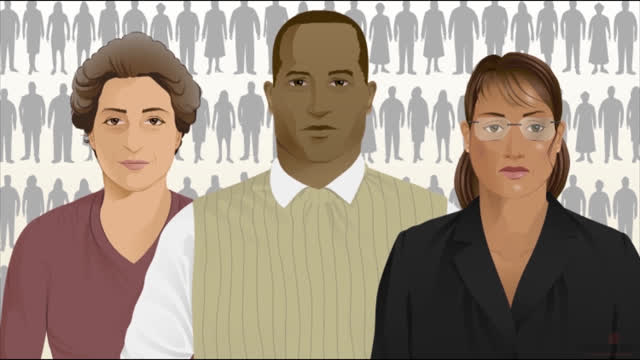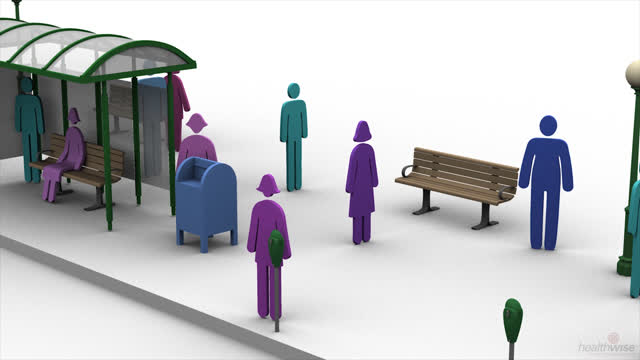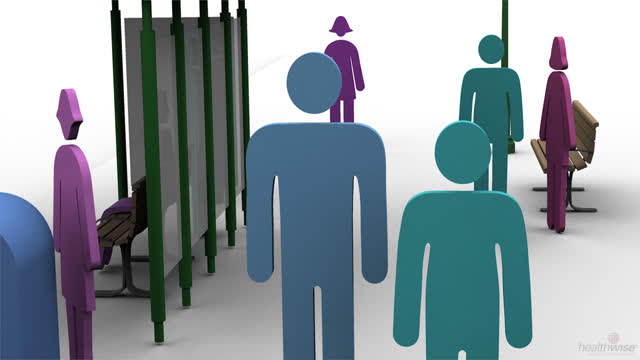Depression Screening
Make an Appointment
Our team is here to help you make an appointment with the specialists that you need.
Depression Screening
Screening Overview
Depression is a mental health condition that makes you feel sad, lose interest in things you used to enjoy, and withdraw from others. It's more than normal sadness, grief, or low energy. Treatment can help you enjoy life again.
Who should be screened for depression?
The U.S. Preventive Services Task Force recommends that all people, starting at age 12, be screened for depression by their doctor. Screening for depression helps find depression early. And early treatment may help people recover faster.
What is depression screening?
Depression screening is a quick way for a doctor to see if you have symptoms of depression. This screening is often part of a routine checkup. That's because your mental health is just as important as your physical health. And depression is very common. It affects people of all ages.
Your doctor may ask you about such things as:
- Feelings of sadness.
- Any changes in your interest in everyday activities, your hunger or weight, your energy level, your concentration, and your sleep.
- Any thoughts of self-harm or suicide.
What happens during screening?
You may be asked to fill out a form about your depression symptoms. You and the doctor will discuss your answers. The doctor may ask you more questions to learn more about how you think, act, and feel.
What happens after screening?
If you have symptoms of depression, your doctor will talk to you about your options.
Doctors usually treat depression with medicines or counseling. Often, combining the two works best. Many people don't get help because they think that they'll get over the depression on their own. But people with depression may not get better unless they get treatment.
The cause of depression is not well understood. There may be many factors involved. But if you have depression, it's not your fault.
A serious symptom of depression is thinking about death or suicide. If you or someone you care about talks about this or about feeling hopeless, get help right away.
It's important to know that depression can be treated. Medicine, counseling, and self-care may help.
Screening in Children and Teens
Depression is a serious mental health condition that can take the joy from a child's life. It's normal for a child to be moody or sad at times, such as after the death of a pet. But if these feelings last for more than 2 weeks, they may be a sign of depression.
What is depression screening in children and teens?
Depression screening is a quick way for a doctor to see if your child has symptoms of depression. This screening is often part of a routine checkup. That's because your child's mental health is just as important as their physical health.
What happens during screening?
Your teen or older child may be asked to fill out a form about their depression symptoms. It's important for your child to be honest about how they are feeling. The doctor and your child will talk about the answers. The doctor may ask you or your child more questions to learn more about how your child thinks, acts, and feels.
The doctor may want to know about things like:
- Grouchiness.
- Lost interest in activities that used to be fun.
- Changes in appetite.
- Weight gain or loss.
- Sleeping more or less than usual.
- Not wanting to spend time with friends or family, and more.
Teens and older children with depression may also have other conditions. These might be anxiety, attention deficit hyperactivity disorder (ADHD), or an eating disorder. The doctor may ask questions about these things too.
What happens after your child's or teen's screening?
If your child has symptoms of depression, the doctor will talk to you about your options.
Doctors usually treat depression with medicines or counseling. Often, combining the two works best. Many people think that they'll get over the depression on their own. But people with depression may not get better unless they get treatment. It's a medical condition. And it isn't your child's fault.
It's important to know that depression can be treated. The first step toward feeling better is often just seeing that the condition exists.
A serious symptom of depression is thinking about death or suicide.
Where to get help 24 hours a day, 7 days a week
If your child talks about suicide, self-harm, a mental health crisis, a substance use crisis, or any other kind of emotional distress, get help right away. You can:
- Call the Suicide and Crisis Lifeline at 988.
- Call 1-800-273-TALK (1-800-273-8255).
- Text HOME to 741741 to access the Crisis Text Line.
Consider saving these numbers in your phone.
Go to 988lifeline.org for more information or to chat online.
Credits
Current as of: July 31, 2024
Author: Ignite Healthwise, LLC Staff
Clinical Review Board
All Healthwise education is reviewed by a team that includes physicians, nurses, advanced practitioners, registered dieticians, and other healthcare professionals.
Current as of: July 31, 2024
Author: Ignite Healthwise, LLC Staff
Clinical Review Board
All Healthwise education is reviewed by a team that includes physicians, nurses, advanced practitioners, registered dieticians, and other healthcare professionals.
This information does not replace the advice of a doctor. Ignite Healthwise, LLC, disclaims any warranty or liability for your use of this information. Your use of this information means that you agree to the Terms of Use. Learn how we develop our content.
To learn more about Ignite Healthwise, LLC, visit webmdignite.com.
© 2024-2025 Ignite Healthwise, LLC.
This information does not replace the advice of a doctor. Ignite Healthwise, LLC, disclaims any warranty or liability for your use of this information. Your use of this information means that you agree to the Terms of Use. Learn how we develop our content.






